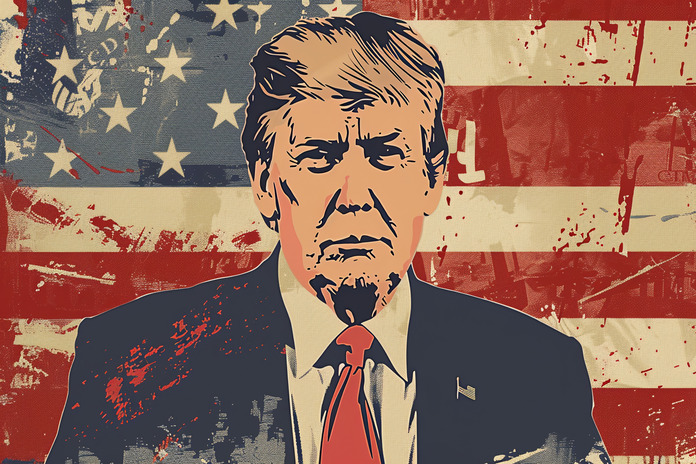Former President Donald Trump’s policies and potential influence over interest rates are becoming a significant concern for the U.S. economy. Trump’s stance on interest rates has historically been aggressive, and his potential reelection could bring notable changes. This article delves into how Trump’s policies might impact interest rates and the broader economic implications.
Trump’s Historical Influence on Interest Rates
During his presidency, Trump frequently pressured the Federal Reserve to lower interest rates, aiming for near-zero or even negative rates. This approach was intended to stimulate economic growth by making borrowing cheaper. However, it also raised concerns about long-term economic stability and the potential for inflation.
Critics argued that persistently low rates could lead to excessive borrowing, asset bubbles, and reduce the Fed’s ability to respond to future economic crises. Trump’s unprecedented public pressure on the Fed also raised questions about the central bank’s independence and the potential political influences on monetary policy decisions.
Potential Impact on the Housing Market
If Trump were to win a second term, his policies could significantly impact the housing market. Historically low interest rates during his first term led to a red-hot seller’s market. If similar policies are implemented again, we could see an increase in housing demand, potentially driving up home prices and making mortgages more accessible. However, this could also lead to increased market volatility and potential risks of a housing bubble.
Additionally, the impact on first-time homebuyers could be significant, as rising prices may push affordability out of reach for many. Moreover, investors might flock to the real estate market seeking higher returns, further inflating property values and exacerbating inequality in housing access. Policymakers would need to carefully balance these factors to avoid negative outcomes.
Economists’ Perspectives on Trump Interest Rates
Economists are divided on the potential impact of Trump’s policies on interest rates. While some believe that lower rates could boost economic growth and job creation, others warn of the risks associated with prolonged low rates, such as inflation and economic instability. According to Oxford Economics, the risk of a painful economic outcome is significant if rates are manipulated without considering long-term effects.
Pantheon Macroeconomics chief economist Ian Shepherdson and Renaissance Macro head of economics Neil Dutta have expressed concerns about the potential for increased unemployment and economic slowdown if rates are not managed carefully. They argue that while lower rates might provide short-term relief, the long-term consequences could be detrimental to the economy.
Market Reactions and Predictions
Market strategists are closely watching the labor market and other economic indicators to gauge the impact of potential rate cuts. Citigroup’s head of equity trading strategy Stuart Kaiser noted that the labor market is a critical factor for market performance. Investors are currently anticipating rate cuts, but the actual implementation and timing remain uncertain.
Additionally, any unexpected changes in jobless claims or inflation data could significantly influence the Federal Reserve’s decisions. Market volatility is expected to persist as traders adjust their positions based on economic reports and central bank signals, highlighting the fragile balance in the current economic landscape.
Conclusion
Featured Image: Freepik © hoaixuanboss







